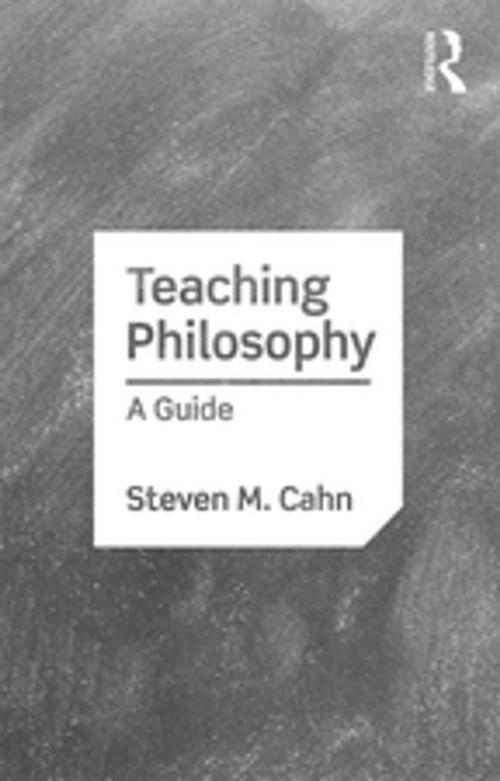| Author: | Steven M. Cahn | ISBN: | 9781351122177 |
| Publisher: | Taylor and Francis | Publication: | March 9, 2018 |
| Imprint: | Routledge | Language: | English |
| Author: | Steven M. Cahn |
| ISBN: | 9781351122177 |
| Publisher: | Taylor and Francis |
| Publication: | March 9, 2018 |
| Imprint: | Routledge |
| Language: | English |
Some students find philosophy engrossing; others are merely bewildered.
How can professors meet the challenge of teaching introductory-level philosophy so that their students, regardless of initial incentive or skill, come to understand and even enjoy the subject?
For nearly a decade, renowned philosopher and teacher Steven M. Cahn offered doctoral students a fourteen-week, credit-bearing course to prepare them to teach undergraduates. At schools where these instructors were appointed, department chairs reported a dramatic increase in student interest. In this book, Cahn captures the essence of that course.
Yet many of the topics he discusses concern all faculty, regardless of subject: a teacher’s responsibilities, the keys to effective instruction, the proper approach to term papers, examinations, and grades; and suggestions for how administrators should demonstrate that they take teaching seriously. Such matters are covered in the first seven chapters and in the final, fourteenth chapter. The intermediate six chapters focus on teaching introductory philosophy and, in particular, on critical thinking, free will, philosophy of religion, ethics, and political philosophy.
Cahn’s writing is lucid and lively, using vivid examples and avoiding educational jargon. In sum, this book is not only a guide on how to inspire students but also an inspiration for teachers themselves.
Some students find philosophy engrossing; others are merely bewildered.
How can professors meet the challenge of teaching introductory-level philosophy so that their students, regardless of initial incentive or skill, come to understand and even enjoy the subject?
For nearly a decade, renowned philosopher and teacher Steven M. Cahn offered doctoral students a fourteen-week, credit-bearing course to prepare them to teach undergraduates. At schools where these instructors were appointed, department chairs reported a dramatic increase in student interest. In this book, Cahn captures the essence of that course.
Yet many of the topics he discusses concern all faculty, regardless of subject: a teacher’s responsibilities, the keys to effective instruction, the proper approach to term papers, examinations, and grades; and suggestions for how administrators should demonstrate that they take teaching seriously. Such matters are covered in the first seven chapters and in the final, fourteenth chapter. The intermediate six chapters focus on teaching introductory philosophy and, in particular, on critical thinking, free will, philosophy of religion, ethics, and political philosophy.
Cahn’s writing is lucid and lively, using vivid examples and avoiding educational jargon. In sum, this book is not only a guide on how to inspire students but also an inspiration for teachers themselves.















